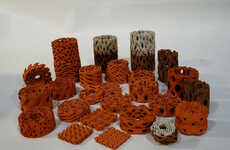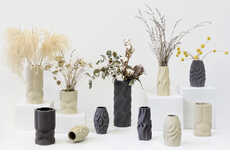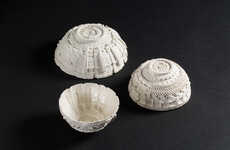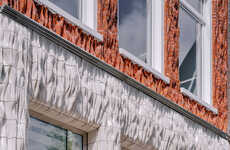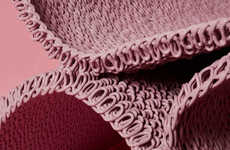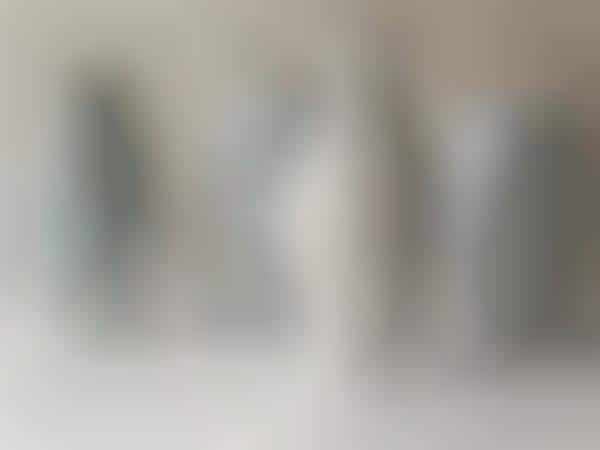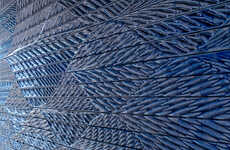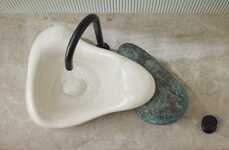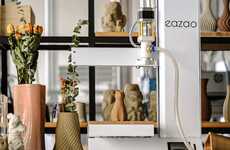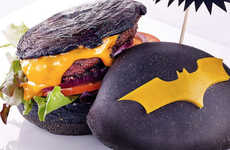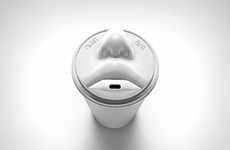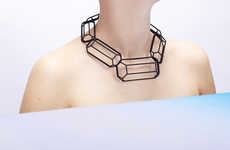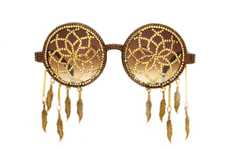
Jonathan Keep's 3D-Printed Ceramic Art Blend Nature, Crafts and Technology
Laura McQuarrie — November 4, 2014 — Art & Design
References: keep-art & design-milk
As awesome as 3D printing is, objects created using this technology often have a machined look that is polished and perfected in such a way that it has almost no character at all—not these impressive 3D-printed ceramics by British artist Jonathan Keep though.
These 3D-printed sculptures take inspiration from patterns and forms found in nature, abstracting elements like wood, icebergs, seeds and waves. As you might expect, rather than using something like plastic for printing, Keep built his own 3D printer and made it so that the machine creates with clay. Although the pottery pieces are made by a 3D printer and some of the sculptures can get quite complex, some of Keep's creations have the look of being handcrafted.
These 3D-printed sculptures take inspiration from patterns and forms found in nature, abstracting elements like wood, icebergs, seeds and waves. As you might expect, rather than using something like plastic for printing, Keep built his own 3D printer and made it so that the machine creates with clay. Although the pottery pieces are made by a 3D printer and some of the sculptures can get quite complex, some of Keep's creations have the look of being handcrafted.
Trend Themes
1. Nature-inspired 3D Printing - There is an opportunity for artists and designers to use 3D printing technology to create unique objects that draw inspiration from the natural world.
2. Custom 3D Printers - There is an opportunity for entrepreneurs to create custom 3D printers that are specifically designed to print with clay or other ceramics.
3. Handcrafted 3D Printing - There is an opportunity for 3D printing technology to create objects that have the look and feel of being handcrafted.
Industry Implications
1. Art and Design - There is an opportunity for artists and designers to use 3D printing technology to create unique, nature-inspired creations, challenging the traditional boundaries of art.
2. 3D Printing - There is room for disruptive innovation in the 3D printing industry by introducing custom 3D printers designed to print with ceramics, expanding the capabilities of the technology.
3. Crafts and Pottery - There is an opportunity for the crafts and pottery industry to adopt 3D printing technology, allowing for the creation of complex and customizable pieces.
4.6
Score
Popularity
Activity
Freshness

